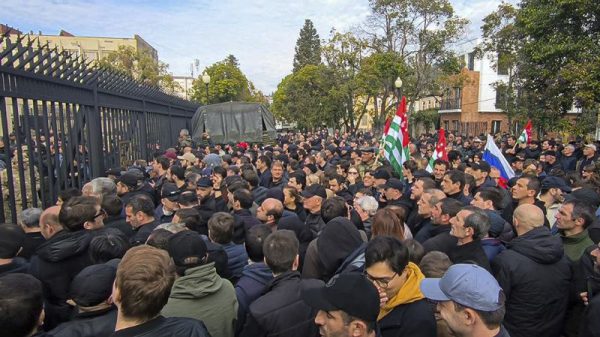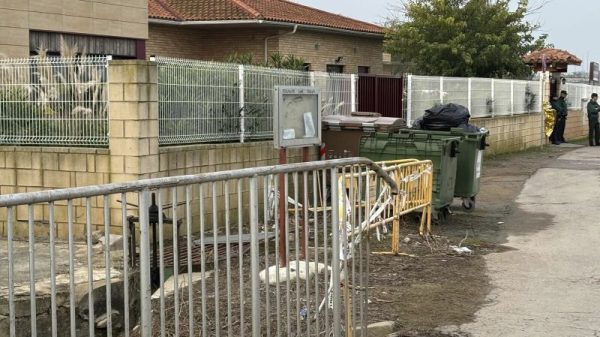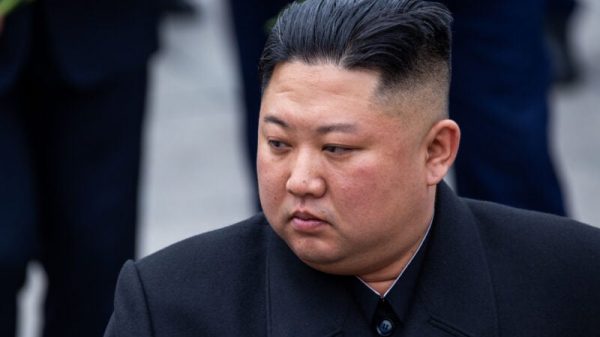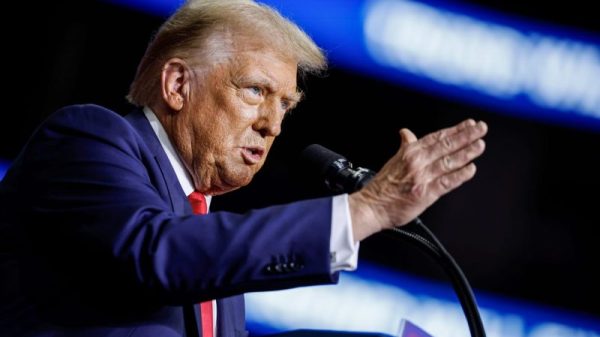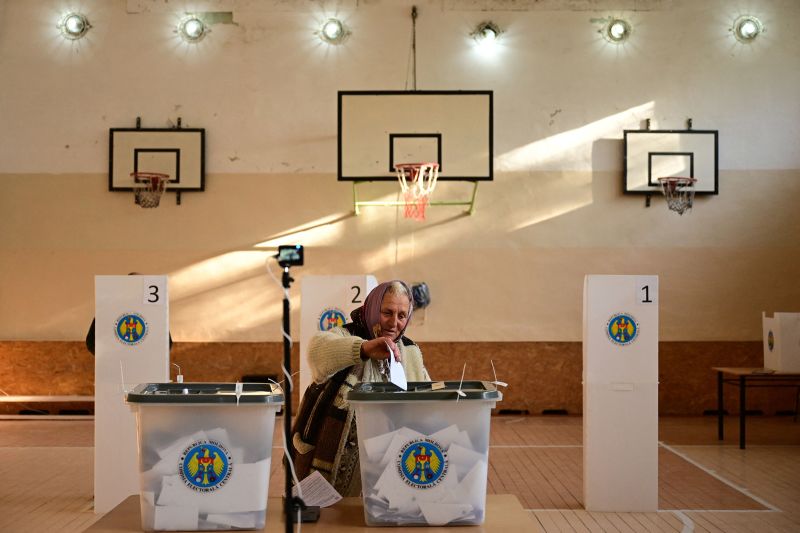Moldovans vote in the second round of a crucial presidential election on Sunday, which could determine whether the post-Soviet country stays its course toward Europe or lurches back into the Kremlin’s orbit.
Maia Sandu, the pro-Western president, is seeking reelection after guiding Moldova closer to the European Union than ever before while Russia’s war in Ukraine raged near its eastern border.
Sandu secured 42% of the first-round vote, held on the same day as a referendum on EU membership that passed by the thinnest of margins. Both votes were marred by a vast Kremlin-linked vote-buying scheme, which Sandu said amounted to an “unprecedented assault” on Moldova’s democracy.
She faces Alexandr Stoianoglo, a former prosecutor general running for the pro-Russian Party of Socialists. If other Kremlin-friendly parties swing their support behind him, the second round will be extremely close.
In last Sunday’s presidential debate, Sandu – a Harvard-educated former World Bank official who has cut ties with Moscow – called Stoianoglo a “Trojan Horse” seeking to infiltrate the country’s capital, Chisinau, on the Kremlin’s behalf.
Before last month’s votes, Ilan Shor, a Russian-backed oligarch, offered to pay people for working to elect a Russia-friendly candidate and stop the referendum passing. Sandu said the scheme sought to pay off some 300,000 voters – about 10% of the population.
Despite polling at just over 10% before the election, Stoianoglo won more than 26% of first-round votes. Both the Kremlin and Shor have denied interference, but Moldovan officials have warned the second vote could also be targeted by similar schemes.
Apart from vote-buying, analysts say the first round revealed genuine opposition to Sandu, whose first term has been wracked by successive crises.
Although Sandu has weaned Moldova off Russian gas, it came at a heavy cost to one of Europe’s poorest countries. Inflation briefly rocketed to more than 30%, causing poverty to tick up.
Some have also criticized Sandu’s “cynical” decision to hold the EU referendum on the same day as the presidential election, positioning herself as the only politician capable of bringing Moldova into Europe.
“The plan of the government was that the issue of European integration will drag up the support for Maia Sandu. It turned out the other way round: The discontent with Maia Sandu dragged down the support for European integration,” said Samurokov.
Stoianoglo is attempting to capitalize on discontent with Sandu by keeping one foot in both camps. He has called for a “reset” of relations with Moscow and said he would be willing to meet Russian President Vladimir Putin, while maintaining he is committed to joining the EU.
As a result, his platform is a mix of contradictory policies, said Samurokov: “You either support European integration, or you want to promote cooperation with Moscow. It’s very difficult to reconcile.”
Still, Moldovan officials are braced for a second round of voting marred by pro-Russian meddling. A defeat for Sandu would land a crushing blow for Moldova’s hopes of a European future.
A Russia-friendly government could also spell further trouble in Transnistria, a separatist sliver of territory where some 1,500 Russian troops are stationed. Officials have long questioned whether Transnistria could eventually become a second front in the war in Ukraine.
Moldova’s election will come a week after Georgia’s, another formerly Communist state where Russia is seeking to keep its influence alive.
After the increasingly autocratic Georgian Dream party claimed victory, Ukrainian President Volodymyr Zelensky claimed Russia has “won” in Georgia and is on its way to doing the same in Moldova. Sunday’s vote will determine whether he is right.







